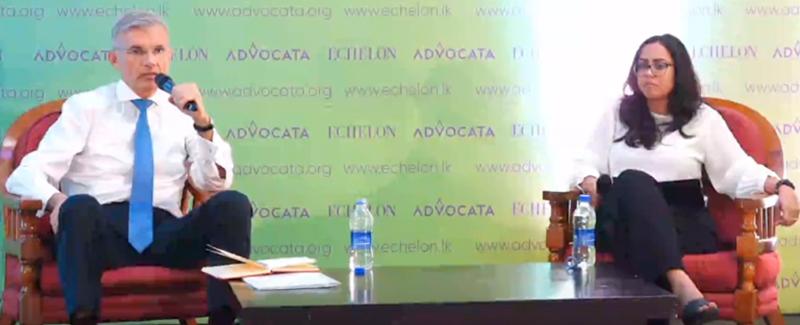
Sri Lanka should not overlook the basics of first generation reforms such as macroeconomic stability, having more competition domestically and opening up international trade and investment before thinking of advanced industrial revolution, opines a top economist. Addressing a recent lecture titled Capitalism in Asia: What it means for Sri Lanka, Associate Professor at the Lee Kuan Yew School of Public Policy at the National University of Singapore, Razeen Sally points out that the country which is transitioning towards an upper middle-income country should not be overly dependent on the kind of ‘catch-up growth’ it had in the past, but try to improve its institutional framework and focus on innovation.
“We have to get the basics right before even thinking of the fancier stuff because that’s really the enabling platform for everything else. To really take advantage of what’s coming around the corner probably requires going into deeper structural reforms on many aspects,” Sally said. The eminent economist noted that while long-range reforms may not be feasible at the moment given the political sensitivities, a core of priority short-term reforms that are achievable could start with having a stable fiscal policy, monetary policy and exchange rate.
“Dr. Coomaraswamy, at the helm of the Central Bank, has done a successful job in very difficult circumstances in trying to restore some sort of stability to the economy with the backing of the IMF program. “Beyond that, I think is a story of failure. We need a bonfire of regulations domestically to unleash those entrepreneurial energies but so far that’s not happened,” the Professor who taught at the London School of Economics, where he received his PhD, outlined.
Whilst commending the authorities for making some headway on reforms with the assistance of the International Monetary Fund, Prof. Sally, however, noted that structural reforms in the banking system, land market, labour markets and in education and training, have, however, not materialised.“It’s going to be very difficult to do anything serious between now and the next elections and because the government isn’t fighting this battle, its principles aren’t fighting this battle.The policies are out there. It’s just that the government itself and its principles haven’t articulated a coherent vision and they haven’t championed those policies which is a dereliction of leadership.“We need to find a way out of that. The odds are that it won’t happen. The reform window is either closing or has already closed,” said Sally.
The Professor noted that it is difficult to see Sri Lanka taking advantage of new technologies with the education system it has, with the lack of vocational training, with a very low science base, given its deficiencies in hard and soft infrastructure.
“These policies are not politically feasible at present, but even if they were, will take time to unfold and bear fruit,” he said.
On the other hand, the Professor emphasised that Sri Lanka has very little room left for ‘catch-up’ growth due to its ageing population and therefore, requires more efficient use of capital and land resources. Commenting on the method of implementing reforms, Sally said it is important to have a good core group of people through a combination of people of different expertise coupled with experienced practical people.
Meanwhile, Sally, who also chairs the Institute of Policy Studies, the main economic-policy think tank in Sri Lanka, highlighted that for Sri Lanka to have successful capitalism at home requires an appropriate balance in foreign economic and security policy.“My recipe for Sri Lanka’s foreign economic and security policies is to have balance and not to be too dependent on one country in particular. What I’m most worried about is China. Yes of course we cannot afford to antagonise China too much but at the same time, we shouldn’t be China’s brown noses,” the Professor advocated.
Speaking on the future growth of economies in the Asian sub continent, Prof. Sally said
Asia will find it much more difficult to meet its innovation challenges than it did to meet its catch-up challenges in past decades. “I have strong doubts about the ability of Asia’s political and economic institutions to meet future innovation challenges. Not least, I doubt China’s ability to move to Schumpeterian capitalism under ‘market Leninism’, and to provide effective leadership in Asia – a Pax Sinica to replace the Pax Americana,” Sally noted.
On the other hand, Sally said he believes Schumpeterian capitalism needs stronger liberal-democratic institutions and more open societies in Asia, and a global context of stability and openness that will require continued leadership by the United States. “That, I believe, is essential for the preservation and expansion of freedom and prosperity in Asia. But nothing is pre-programmed.
There is a battle to fight. And it must also be fought on Sri Lankan soil – in economic policy, in building liberal-democratic political and economic institutions, in relations with foreign powers, and participation in international institutions,” the Professor advocated.
